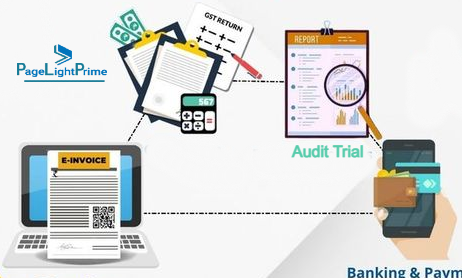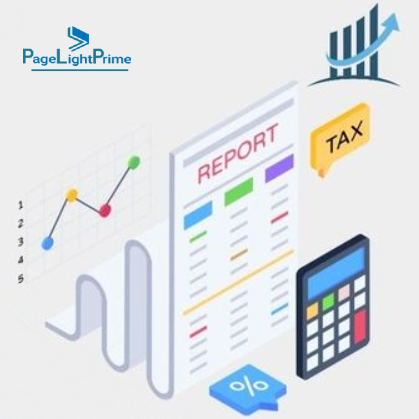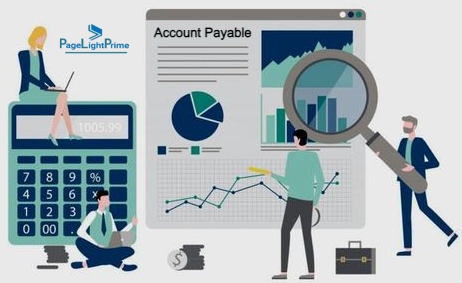Why Law Firms Need Legal Accounting Software
The legal profession is built on precision, trust, and accountability. For law firms, maintaining accurate financial records is not just good practice; it’s a legal and ethical requirement. This responsibility is further complicated by the complex billing structures, trust accounting, and compliance regulations that govern the legal industry. In an age where technology is reshaping every sector, legal accounting software has become an essential tool for law firms to streamline their financial operations, enhance efficiency, and ensure compliance.
Written by Knowledge Team, posted on October 20, 2023

Billing Accuracy and Efficiency
Billing is a critical component of a law firm’s financial operations. Lawyers often bill clients based on billable hours, contingency fees, flat rates, or a combination of these methods. Tracking these billing arrangements manually can be time-consuming and prone to errors. Legal accounting software automates the billing process, ensuring accuracy and efficiency.

Time tracking
Law firm time tracking software, which is module of accounting solution, allows lawyers to track billable hours automatically, making sure that no billable minutes are lost. This not only improves accuracy but also increases revenue by capturing all billable work.
Invoicing
Automated invoicing feature of integrated legal billing systems generate bills quickly and accurately, reducing the chances of disputes or delayed payments. Clients receive clear, detailed invoices, enhancing transparency.
Expense management
Legal accounting software streamlines expense tracking, allowing lawyers to allocate expenses to specific clients and matters. This makes it easier to bill clients for reimbursable expenses.
Trust Accounting Compliance
Law firms often handle client funds, which must be managed in compliance with strict trust accounting regulations. Trust accounting is a specialized aspect of legal finance, and any violation can lead to ethical and legal consequences. Legal accounting software includes features to ensure trust accounting compliance:
Segregation of funds
These software solutions allow law firms to maintain separate trust accounts, preventing commingling of client and firm funds.
Reconciliation
Trust account reconciliation is simplified, helping firms detect and rectify discrepancies in real-time.
Audit trail
Legal trust accounting software maintains an audit trail, which is essential for compliance and providing transparency in case of audits or investigations.

Financial Reporting and Analysis
Effective financial management requires in-depth analysis and reporting. Legal accounting software provides law firms with the tools needed to generate comprehensive financial reports. This helps in making informed decisions, monitoring performance, and identifying areas for improvement:

Profitability analysis
Software can generate reports that break down revenue and expenses by client, matter, and lawyer, helping firms understand where they make money and where they can cut costs.
Budgeting and forecasting
Legal accounting software enables firms to set budgets and forecast financial performance. This is essential for strategic planning and managing resources effectively.
Compliance reporting
With built-in compliance reports, law firms can quickly generate the documentation needed for audits and regulatory submissions.
Data Security and Privacy
Client confidentiality is paramount in the legal profession, and the security of financial data is a fundamental concern. Legal accounting software is designed with robust security features to protect sensitive financial information:
Encryption
Data stored in legal accounting software is often encrypted to ensure it remains confidential and protected from unauthorized access.
Role-based access control
These solutions enable law firms to control who has access to financial data and what actions they can perform. This limits the risk of internal breaches.
Data backup and recovery
Legal accounting software typically includes automated data backup and recovery options to safeguard against data loss or corruption.

Workflow Automation
Law firms handle a myriad of financial transactions daily, including paying bills, processing payroll, and managing accounts payable and receivable. Legal accounting software automates these processes, reducing the administrative burden on staff and minimizing errors.

Accounts payable
These systems streamline the payment of vendors, ensuring that bills are paid on time and helping law firms maintain strong relationships with suppliers.
Payroll processing
Legal accounting software simplifies the process of paying lawyers and staff, considering complex compensation structures and tax regulations.
Accounts receivable
Automated reminders and follow-up processes help firms collect outstanding payments promptly.
Scalability
As law firms grow, their financial operations become increasingly complex. Legal accounting software is scalable, allowing firms to adapt to changes in size and structure without needing a complete overhaul of their financial systems. This flexibility is essential for law firms aiming to expand and evolve.
Time and Cost Savings
The implementation of legal accounting software might require an initial investment, but the long-term benefits are significant. The time and cost savings associated with streamlined financial processes can be substantial. These software solutions reduce the need for manual data entry, eliminate redundant tasks, and improve efficiency across the board.
Integration with Other Legal Software
Legal accounting software often integrates seamlessly with other legal management software, including practice management, document management, and client relationship management tools. This integration facilitates the sharing of data, eliminates duplicate data entry, and enhances the overall efficiency of the firm.
Conclusion
Legal accounting software is no longer a luxury; it’s a necessity for modern law firms. The complexity of legal billing, trust accounting, and compliance regulations, coupled with the need for data security and efficiency, makes these tools indispensable. With legal accounting software, law firms can improve billing accuracy, ensure trust accounting compliance, gain better financial insights, and streamline their operations, ultimately allowing them to focus on what they do best: practicing law. The investment in legal accounting software is an investment in the firm’s financial stability and long-term success.
